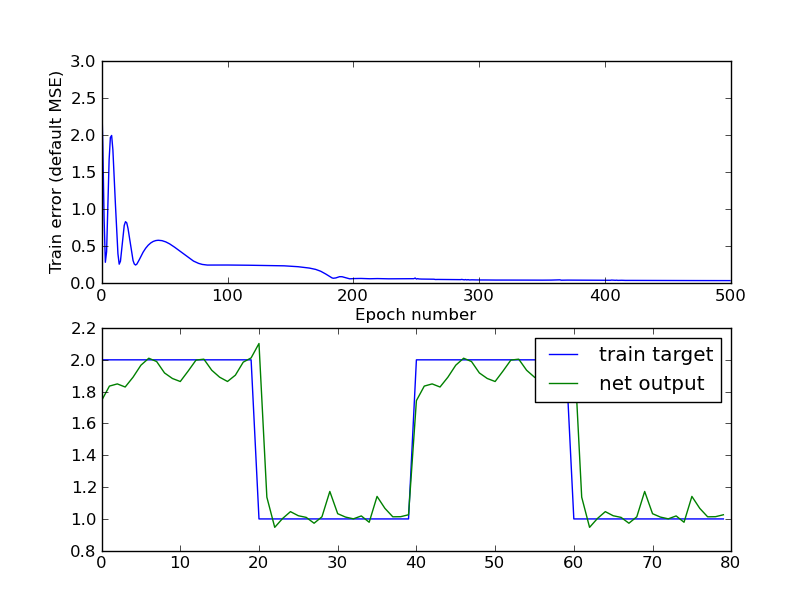Elman Recurrent network (newelm)¶
Use neurolab.net.newelm()
# -*- coding: utf-8 -*-
"""
Example of use Elman recurrent network
=====================================
Task: Detect the amplitudes
"""
import neurolab as nl
import numpy as np
# Create train samples
i1 = np.sin(np.arange(0, 20))
i2 = np.sin(np.arange(0, 20)) * 2
t1 = np.ones([1, 20])
t2 = np.ones([1, 20]) * 2
input = np.array([i1, i2, i1, i2]).reshape(20 * 4, 1)
target = np.array([t1, t2, t1, t2]).reshape(20 * 4, 1)
# Create network with 2 layers
net = nl.net.newelm([[-2, 2]], [10, 1], [nl.trans.TanSig(), nl.trans.PureLin()])
# Set initialized functions and init
net.layers[0].initf = nl.init.InitRand([-0.1, 0.1], 'wb')
net.layers[1].initf= nl.init.InitRand([-0.1, 0.1], 'wb')
net.init()
# Train network
error = net.train(input, target, epochs=500, show=100, goal=0.01)
# Simulate network
output = net.sim(input)
# Plot result
import pylab as pl
pl.subplot(211)
pl.plot(error)
pl.xlabel('Epoch number')
pl.ylabel('Train error (default MSE)')
pl.subplot(212)
pl.plot(target.reshape(80))
pl.plot(output.reshape(80))
pl.legend(['train target', 'net output'])
pl.show()
| Result: | 
|
|---|